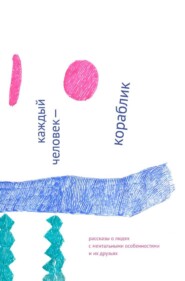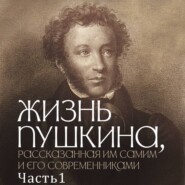По всем вопросам обращайтесь на: info@litportal.ru
(©) 2003-2025.
✖
Best Russian Short Stories
Настройки чтения
Размер шрифта
Высота строк
Поля
When the tree was down, his grandfather dragged it to the master's house, and there they set about decorating it. The young lady, Olga Ignatyevna, Vanka's great friend, busied herself most about it. When little Vanka's mother, Pelagueya, was still alive, and was servant-woman in the house, Olga Ignatyevna used to stuff him with sugar-candy, and, having nothing to do, taught him to read, write, count up to one hundred, and even to dance the quadrille. When Pelagueya died, they placed the orphan Vanka in the kitchen with his grandfather, and from the kitchen he was sent to Moscow to Aliakhin, the shoemaker.
"Come quick, dear Grandpapa," continued Vanka, "I beseech you for Christ's sake take me from here. Have pity on a poor orphan, for here they beat me, and I am frightfully hungry, and so sad that I can't tell you, I cry all the time. The other day the master hit me on the head with a last; I fell to the ground, and only just returned to life. My life is a misfortune, worse than any dog's… I send greetings to Aliona, to one-eyed Tegor, and the coachman, and don't let any one have my mouth-organ. I remain, your grandson, Ivan Zhukov, dear Grandpapa, do come."
Vanka folded his sheet of paper in four, and put it into an envelope purchased the night before for a kopek. He thought a little, dipped the pen into the ink, and wrote the address:
"The village, to my grandfather." He then scratched his head, thought again, and added: "Konstantin Makarych." Pleased at not having been interfered with in his writing, he put on his cap, and, without putting on his sheep-skin coat, ran out in his shirt-sleeves into the street.
The shopman at the poulterer's, from whom he had inquired the night before, had told him that letters were to be put into post-boxes, and from there they were conveyed over the whole earth in mail troikas by drunken post-boys and to the sound of bells. Vanka ran to the first post-box and slipped his precious letter into the slit.
An hour afterwards, lulled by hope, he was sleeping soundly. In his dreams he saw a stove, by the stove his grandfather sitting with his legs dangling down, barefooted, and reading a letter to the cooks, and Viun walking round the stove wagging his tail.
HIDE AND SEEK
BY FIODOR SOLOGUB
I
Everything in Lelechka's nursery was bright, pretty, and cheerful. Lelechka's sweet voice charmed her mother. Lelechka was a delightful child. There was no other such child, there never had been, and there never would be. Lelechka's mother, Serafima Aleksandrovna, was sure of that. Lelechka's eyes were dark and large, her cheeks were rosy, her lips were made for kisses and for laughter. But it was not these charms in Lelechka that gave her mother the keenest joy. Lelechka was her mother's only child. That was why every movement of Lelechka's bewitched her mother. It was great bliss to hold Lelechka on her knees and to fondle her; to feel the little girl in her arms – a thing as lively and as bright as a little bird.
To tell the truth, Serafima Aleksandrovna felt happy only in the nursery. She felt cold with her husband.
Perhaps it was because he himself loved the cold – he loved to drink cold water, and to breathe cold air. He was always fresh and cool, with a frigid smile, and wherever he passed cold currents seemed to move in the air.
The Nesletyevs, Sergey Modestovich and Serafima Aleksandrovna, had married without love or calculation, because it was the accepted thing. He was a young man of thirty-five, she a young woman of twenty-five; both were of the same circle and well brought up; he was expected to take a wife, and the time had come for her to take a husband.
It even seemed to Serafima Aleksandrovna that she was in love with her future husband, and this made her happy. He looked handsome and well-bred; his intelligent grey eyes always preserved a dignified expression; and he fulfilled his obligations of a fiancé with irreproachable gentleness.
The bride was also good-looking; she was a tall, dark-eyed, dark-haired girl, somewhat timid but very tactful. He was not after her dowry, though it pleased him to know that she had something. He had connexions, and his wife came of good, influential people. This might, at the proper opportunity, prove useful. Always irreproachable and tactful, Nesletyev got on in his position not so fast that any one should envy him, nor yet so slow that he should envy any one else – everything came in the proper measure and at the proper time.
After their marriage there was nothing in the manner of Sergey Modestovich to suggest anything wrong to his wife. Later, however, when his wife was about to have a child, Sergey Modestovich established connexions elsewhere of a light and temporary nature. Serafima Aleksandrovna found this out, and, to her own astonishment, was not particularly hurt; she awaited her infant with a restless anticipation that swallowed every other feeling.
A little girl was born; Serafima Aleksandrovna gave herself up to her. At the beginning she used to tell her husband, with rapture, of all the joyous details of Lelechka's existence. But she soon found that he listened to her without the slightest interest, and only from the habit of politeness. Serafima Aleksandrovna drifted farther and farther away from him. She loved her little girl with the ungratified passion that other women, deceived in their husbands, show their chance young lovers.
"Mamochka, let's play priatki" (hide and seek), cried Lelechka, pronouncing the r like the l, so that the word sounded "pliatki."
This charming inability to speak always made Serafima Aleksandrovna smile with tender rapture. Lelechka then ran away, stamping with her plump little legs over the carpets, and hid herself behind the curtains near her bed.
"Tiu-tiu, mamochka!" she cried out in her sweet, laughing voice, as she looked out with a single roguish eye.
"Where is my baby girl?" the mother asked, as she looked for Lelechka and made believe that she did not see her.
And Lelechka poured out her rippling laughter in her hiding place. Then she came out a little farther, and her mother, as though she had only just caught sight of her, seized her by her little shoulders and exclaimed joyously: "Here she is, my Lelechka!"
Lelechka laughed long and merrily, her head close to her mother's knees, and all of her cuddled up between her mother's white hands. Her mother's eyes glowed with passionate emotion.
"Now, mamochka, you hide," said Lelechka, as she ceased laughing.
Her mother went to hide. Lelechka turned away as though not to see, but watched her mamochka stealthily all the time. Mamma hid behind the cupboard, and exclaimed: "Tiu-tiu, baby girl!"
Lelechka ran round the room and looked into all the corners, making believe, as her mother had done before, that she was seeking – though she really knew all the time where her mamochka was standing.
"Where's my mamochka?" asked Lelechka. "She's not here, and she's not here," she kept on repeating, as she ran from corner to corner.
Her mother stood, with suppressed breathing, her head pressed against the wall, her hair somewhat disarranged. A smile of absolute bliss played on her red lips.
The nurse, Fedosya, a good-natured and fine-looking, if somewhat stupid woman, smiled as she looked at her mistress with her characteristic expression, which seemed to say that it was not for her to object to gentlewomen's caprices. She thought to herself: "The mother is like a little child herself – look how excited she is."
Lelechka was getting nearer her mother's corner. Her mother was growing more absorbed every moment by her interest in the game; her heart beat with short quick strokes, and she pressed even closer to the wall, disarranging her hair still more. Lelechka suddenly glanced toward her mother's corner and screamed with joy.
"I've found 'oo," she cried out loudly and joyously, mispronouncing her words in a way that again made her mother happy.
She pulled her mother by her hands to the middle of the room, they were merry and they laughed; and Lelechka again hid her head against her mother's knees, and went on lisping and lisping, without end, her sweet little words, so fascinating yet so awkward.
Sergey Modestovich was coming at this moment toward the nursery. Through the half-closed doors he heard the laughter, the joyous outcries, the sound of romping. He entered the nursery, smiling his genial cold smile; he was irreproachably dressed, and he looked fresh and erect, and he spread round him an atmosphere of cleanliness, freshness and coldness. He entered in the midst of the lively game, and he confused them all by his radiant coldness. Even Fedosya felt abashed, now for her mistress, now for herself. Serafima Aleksandrovna at once became calm and apparently cold – and this mood communicated itself to the little girl, who ceased to laugh, but looked instead, silently and intently, at her father.
Sergey Modestovich gave a swift glance round the room. He liked coming here, where everything was beautifully arranged; this was done by Serafima Aleksandrovna, who wished to surround her little girl, from her very infancy, only with the loveliest things. Serafima Aleksandrovna dressed herself tastefully; this, too, she did for Lelechka, with the same end in view. One thing Sergey Modestovich had not become reconciled to, and this was his wife's almost continuous presence in the nursery.
"It's just as I thought… I knew that I'd find you here," he said with a derisive and condescending smile.
They left the nursery together. As he followed his wife through the door Sergey Modestovich said rather indifferently, in an incidental way, laying no stress on his words: "Don't you think that it would be well for the little girl if she were sometimes without your company? Merely, you see, that the child should feel its own individuality," he explained in answer to Serafima Aleksandrovna's puzzled glance.
"She's still so little," said Serafima Aleksandrovna.
"In any case, this is but my humble opinion. I don't insist. It's your kingdom there."
"I'll think it over," his wife answered, smiling, as he did, coldly but genially.
Then they began to talk of something else.
II
Nurse Fedosya, sitting in the kitchen that evening, was telling the silent housemaid Darya and the talkative old cook Agathya about the young lady of the house, and how the child loved to play priatki with her mother – "She hides her little face, and cries 'tiutiu'!"
"And the mistress herself is like a little one," added Fedosya, smiling.
Agathya listened and shook her head ominously; while her face became grave and reproachful.
"That the mistress does it, well, that's one thing; but that the young lady does it, that's bad."
"Why?" asked Fedosya with curiosity.
This expression of curiosity gave her face the look of a wooden, roughly-painted doll.
"Yes, that's bad," repeated Agathya with conviction. "Terribly bad!"
"Well?" said Fedosya, the ludicrous expression of curiosity on her face becoming more emphatic.
"She'll hide, and hide, and hide away," said Agathya, in a mysterious whisper, as she looked cautiously toward the door.

















